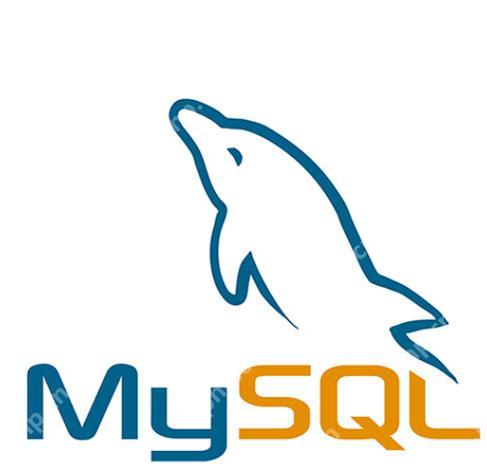How to modify the default port number of MySQL
修改MySQL默认端口号的方法是:1. 打开配置文件sudo nano /etc/my.cnf;2. 在[mysqld]部分添加或修改port = 3307;3. 保存并退出编辑器;4. 重启MySQL服务sudo systemctl restart mysql,这样可以提高数据库的安全性并解决端口冲突问题。

引言
在日常的数据库管理中,调整MySQL的默认端口号是一个常见的需求。无论是出于安全考虑,还是为了避免端口冲突,了解How to modify the default port number of MySQL都是非常有用的。通过这篇文章,你将学会如何安全、有效地进行这一操作,并且我会分享一些我在实际操作中积累的经验和注意事项。
基础知识回顾
MySQL默认使用3306端口,这个端口号在安装MySQL时会被自动设置。如果你需要更改这个端口号,首先需要了解MySQL的配置文件位置。通常,MySQL的配置文件位于/etc/my.cnf或/etc/mysql/my.cnf,但具体路径可能因系统和安装方式不同而有所变化。
核心概念或功能解析
修改MySQL端口号的定义与作用
修改MySQL的默认端口号可以提高数据库的安全性,因为攻击者通常会首先尝试默认端口。此外,修改端口号还可以解决多个MySQL实例或其他服务占用相同端口的问题。
示例
让我们看一个简单的例子,如何在配置文件中修改MySQL的端口号:
# 打开配置文件 sudo nano /etc/my.cnf # 在[mysqld]部分添加或修改以下行 [mysqld] port = 3307
工作原理
当你修改了配置文件中的端口号后,MySQL在启动时会读取这个配置文件,并使用新的端口号进行监听。这个过程涉及到MySQL的服务重启,因此需要确保在修改端口号后正确重启MySQL服务。
实现原理
修改端口号的过程实际上是通过修改MySQL的配置文件来实现的。MySQL会读取配置文件中的port参数,并据此设置监听的端口。需要注意的是,修改端口号后,你需要更新所有依赖于MySQL的应用程序的配置,以确保它们能够连接到新的端口。
使用示例
基本用法
修改MySQL的端口号非常简单,只需在配置文件中添加或修改port参数即可。以下是一个具体的操作步骤:
# 打开配置文件 sudo nano /etc/my.cnf # 在[mysqld]部分添加或修改以下行 [mysqld] port = 3307 # 保存并退出编辑器 # 重启MySQL服务 sudo systemctl restart mysql
高级用法
如果你需要在同一台服务器上运行多个MySQL实例,每个实例可以使用不同的端口号。以下是一个示例配置:
# 实例1的配置文件(/etc/my1.cnf) [mysqld] port = 3307 datadir = /var/lib/mysql1 socket = /var/lib/mysql1/mysql.sock # 实例2的配置文件(/etc/my2.cnf) [mysqld] port = 3308 datadir = /var/lib/mysql2 socket = /var/lib/mysql2/mysql.sock
常见错误与调试技巧
-
端口号冲突:如果你尝试使用一个已经在使用的端口号,MySQL将无法启动。可以通过
netstat -tuln | grep 3307命令检查端口是否被占用。 -
配置文件路径错误:确保你修改的是正确的配置文件。可以通过
mysql --help | grep my.cnf命令查看MySQL读取的配置文件路径。 - 服务未重启:修改配置文件后必须重启MySQL服务,否则更改不会生效。
性能优化与最佳实践
在修改MySQL的端口号时,有几点需要注意:
- 安全性:修改端口号可以提高安全性,但不要忘记更新防火墙规则,以确保新的端口号能够被访问。
- 性能:修改端口号本身不会影响MySQL的性能,但需要确保所有依赖的应用程序都能正确连接到新的端口。
- 最佳实践:在修改端口号前,建议备份配置文件和数据库,以防操作失误导致数据丢失。
通过这篇文章,你不仅学会了How to modify the default port number of MySQL,还了解了一些在实际操作中需要注意的细节和最佳实践。希望这些经验对你有所帮助!
The above is the detailed content of How to modify the default port number of MySQL. For more information, please follow other related articles on the PHP Chinese website!

Hot AI Tools

Undresser.AI Undress
AI-powered app for creating realistic nude photos

AI Clothes Remover
Online AI tool for removing clothes from photos.

Undress AI Tool
Undress images for free

Clothoff.io
AI clothes remover

Video Face Swap
Swap faces in any video effortlessly with our completely free AI face swap tool!

Hot Article

Hot Tools

Notepad++7.3.1
Easy-to-use and free code editor

SublimeText3 Chinese version
Chinese version, very easy to use

Zend Studio 13.0.1
Powerful PHP integrated development environment

Dreamweaver CS6
Visual web development tools

SublimeText3 Mac version
God-level code editing software (SublimeText3)

Hot Topics
 MySQL's Role: Databases in Web Applications
Apr 17, 2025 am 12:23 AM
MySQL's Role: Databases in Web Applications
Apr 17, 2025 am 12:23 AM
The main role of MySQL in web applications is to store and manage data. 1.MySQL efficiently processes user information, product catalogs, transaction records and other data. 2. Through SQL query, developers can extract information from the database to generate dynamic content. 3.MySQL works based on the client-server model to ensure acceptable query speed.
 Laravel Introduction Example
Apr 18, 2025 pm 12:45 PM
Laravel Introduction Example
Apr 18, 2025 pm 12:45 PM
Laravel is a PHP framework for easy building of web applications. It provides a range of powerful features including: Installation: Install the Laravel CLI globally with Composer and create applications in the project directory. Routing: Define the relationship between the URL and the handler in routes/web.php. View: Create a view in resources/views to render the application's interface. Database Integration: Provides out-of-the-box integration with databases such as MySQL and uses migration to create and modify tables. Model and Controller: The model represents the database entity and the controller processes HTTP requests.
 Solve database connection problem: a practical case of using minii/db library
Apr 18, 2025 am 07:09 AM
Solve database connection problem: a practical case of using minii/db library
Apr 18, 2025 am 07:09 AM
I encountered a tricky problem when developing a small application: the need to quickly integrate a lightweight database operation library. After trying multiple libraries, I found that they either have too much functionality or are not very compatible. Eventually, I found minii/db, a simplified version based on Yii2 that solved my problem perfectly.
 Laravel framework installation method
Apr 18, 2025 pm 12:54 PM
Laravel framework installation method
Apr 18, 2025 pm 12:54 PM
Article summary: This article provides detailed step-by-step instructions to guide readers on how to easily install the Laravel framework. Laravel is a powerful PHP framework that speeds up the development process of web applications. This tutorial covers the installation process from system requirements to configuring databases and setting up routing. By following these steps, readers can quickly and efficiently lay a solid foundation for their Laravel project.
 MySQL and phpMyAdmin: Core Features and Functions
Apr 22, 2025 am 12:12 AM
MySQL and phpMyAdmin: Core Features and Functions
Apr 22, 2025 am 12:12 AM
MySQL and phpMyAdmin are powerful database management tools. 1) MySQL is used to create databases and tables, and to execute DML and SQL queries. 2) phpMyAdmin provides an intuitive interface for database management, table structure management, data operations and user permission management.
 MySQL vs. Other Programming Languages: A Comparison
Apr 19, 2025 am 12:22 AM
MySQL vs. Other Programming Languages: A Comparison
Apr 19, 2025 am 12:22 AM
Compared with other programming languages, MySQL is mainly used to store and manage data, while other languages such as Python, Java, and C are used for logical processing and application development. MySQL is known for its high performance, scalability and cross-platform support, suitable for data management needs, while other languages have advantages in their respective fields such as data analytics, enterprise applications, and system programming.
 MySQL: Structured Data and Relational Databases
Apr 18, 2025 am 12:22 AM
MySQL: Structured Data and Relational Databases
Apr 18, 2025 am 12:22 AM
MySQL efficiently manages structured data through table structure and SQL query, and implements inter-table relationships through foreign keys. 1. Define the data format and type when creating a table. 2. Use foreign keys to establish relationships between tables. 3. Improve performance through indexing and query optimization. 4. Regularly backup and monitor databases to ensure data security and performance optimization.
 MySQL for Beginners: Getting Started with Database Management
Apr 18, 2025 am 12:10 AM
MySQL for Beginners: Getting Started with Database Management
Apr 18, 2025 am 12:10 AM
The basic operations of MySQL include creating databases, tables, and using SQL to perform CRUD operations on data. 1. Create a database: CREATEDATABASEmy_first_db; 2. Create a table: CREATETABLEbooks(idINTAUTO_INCREMENTPRIMARYKEY, titleVARCHAR(100)NOTNULL, authorVARCHAR(100)NOTNULL, published_yearINT); 3. Insert data: INSERTINTObooks(title, author, published_year)VA






